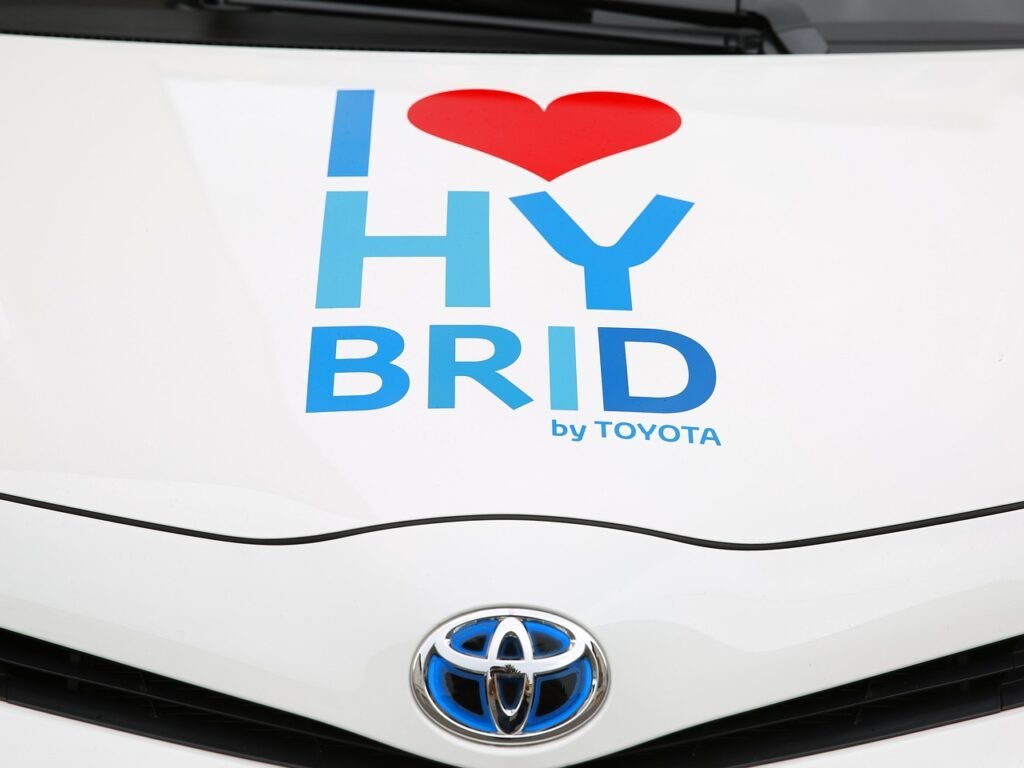Understanding Electric Vehicles and Climate Change
I guess in this world, everyone has a thought to get an Electric car. Some may be because they have heard of the drive quality it provides, while others because of buying a vehicle which is less polluting in nature. Let’s discuss about electric cars. There are talks that one should buy an EV to save the planet. I agree but there are concerns with it for a user as well. Personally, I like to look for solutions which can easily be adopted. It may be less polluting but concerns about what it gives in terms of range, how the battery holds up, and the cost arise.
Electric vehicles (EVs) are one of the best innovative solutions to the growing issue of climate change, providing a cleaner alternative to the traditional gasoline-powered vehicles. These vehicles employ rechargeable batteries, enabling electric motors to be used with reduced consumption of fossil fuels that highly contribute to greenhouse gas emissions. Climate change is defined as changes in temperature and normal weather patterns brought about by human activities such as combustion from burning fossil fuels, deforestation, and industrial processes. The transportation sector is one of the major contributors of carbon emissions, and it accounts for a significant percentage of carbon dioxide emissions released into the atmosphere.
Cutting down the carbon emissions by vehicles can be crucial in the fight against climate change since the transportation sector depends on fossil fuels, thus increasing environmental degradation. Moreover, switching over to electric vehicles could hopefully reduce the impact caused by conventional vehicles on the atmosphere. EVs produce no tailpipe emissions, which translates directly to improved air quality and less urban pollution. As the grid continues to power more renewables, like wind and solar, this overall carbon footprint of EVs continues to decrease.
The interest from consumers in electric vehicles and, more importantly, the support policy for them as a cleaner transportation option are growing. Governments across the globe are promoting its use and additional development in battery technology is making electric vehicles more efficient and affordable for longer distances and lesser recharging times. The more people gain awareness about climate change, the more people will be attracted towards electric vehicles, and thus it will be a critical element while developing sustainable and environmentally friendly transport.
Let us discuss the various types of EVs available, problems and what can be the best option.
Types of Electric Vehicles
1.BATTERY ELECTRIC VEHICLE (BEV):
- They are fully electric which means BEVs are powered by battery pack and electricity.
- The batteries used in it are lithium-ion batteries, lead acid batteries etc.
- They offer quiet and smooth driving experience.
2. HYBRID ELECTRIC VEHICLE(HEV):
- These comprise both an internal combustion engine as well as an electric motor that would power the car, meaning it works on both petrol or diesel and batteries.
- Here batteries are charged by regenerative braking system.
- There are inbuilt systems which will decide when to use battery power and when to use petrol or diesel. Also, we can select this manually as well.
- No need of external power supply to charge the batteries, as it relies on a regenerative braking system.
3. PLUG-IN HYBRID ELECTRIC VEHICLES(PHEV):
- These are same as HEVs, that is they are powered by both petrol or diesel and electricity.
- These vehicles’ batteries can be recharged with plug in supply as well as regenerative braking system.
4. FUEL CELL ELECTRIC VEHICLE(FCEV):
- FCEVs run on hydrogen gas. At a fuel cell, it reacts with oxygen to yield electricity that powers the electric motor. The only output for FCEVs will be water vapour.
- However, the hydrogen fueling infrastructure is still in its early stages of development.
Benefits of Using Electric Vehicles
- The principal advantage of an EV is that the less amount of greenhouse gases is released into the environment. Thus, it helps in mitigating the effect of climate change.
- Electric motors convert much more energy from the battery into power compared to petrol or diesel engines burning fuel. Thus, its energy efficiency is higher, and it leads to significant savings on running costs.
- EVs offers and smooth and quiet driving experience, making the ride more peaceful.
- Electric motors deliver instant torque, providing exciting experience during the acceleration.
- Many governments provide rebates in taxes and other incentives if one buys an electric vehicle.
The Challenges Facing Electric Vehicles
There is growing interest in using electric vehicles (EVs) as a solution to climate change. However, there are several challenges as well which stops their widespread adoption. The primary challenge is that of production and disposal of batteries. The present form of lithium-ion battery required is obtained from such materials as lithium, cobalt, and nickel in ultra-large mining. This raises multiple concerns in environmental degradation as well as questions regarding the sustainability of sourcing the materials especially since global demand for EVs only continues to grow.
Another challenge is lack of proper charging infrastructure. Although everything is constantly being improved, most areas lack enough charging points, making the owning of EVs impossible without a backup of traditional cars. That brings another term called range anxiety that comes when the consumers fear being stranded with no access to the charging point. As a result, many may hesitate to shift from traditional vehicles to electric ones, especially if they plan to use them for long distances journeys.
Another factor in the minds of consumers is that electric vehicles are considered relatively expensive. While that perception is slowly fading over the last couple of years, the up-front cost of an EV is greater than its conventional equivalent. Most of the potential customers do not opt for a switch merely based on the price alone, ignoring the large saving over the life cycle through the fuel and maintenance aspects. Another area of concern with EVs is their performance in various types of climates, in particular in colder climates. Battery efficiency may be compromised in very low temperatures, which means the range and effectiveness are also compromised.
These collectively challenges need to be tackled, then only we can make EVs an integral part of our fight against climate change. The solutions will include overcoming these challenges by adopting new technologies in the sector, improvements of the infrastructure, and educating consumers. All these would make it possible for the electric vehicles to be involved more meaningfully in the fight against climate change.

Hybrid Electric Vehicles: A Transitional Solution
Hybrid electric vehicles (HEVs) is a good bridge between conventional gasoline-powered vehicles and strictly electric vehicles. HEVs uses both a conventional Internal Combustion Engine (ICE) powertrain and uses electric propulsion as well. The double way round of using both gasoline and electricity implies that HEVs are able to take much better advantage of fuel efficiency and emission reduction compared to only gasoline-operated vehicles. As such, it would hold importance in an environmentally conscious consumer’s mind.
One of the most significant advantages of HEVs is their capability to be used for reducing the amount of greenhouse gases. Since it is a vehicle integrating a battery and an electric motor in the powertrain, HEVs can run largely on its electric motors at slow speeds or when idling. This greatly reduces fuel consumption-a significant reduction in carbon footprint. Further, due to the regenerative braking technology in most hybrid models, the energy that otherwise would go to loss while braking is captured, stored in the battery, and utilized afterwards. This innovation improves fuel efficiency and demonstrates some of the instant reductions that can be achieved through HEVs in emissions.
As society strives to address the challenges associated with climate change, HEVs serve as a good option toward broader adoption of fully electric vehicles. While fully electric options may not yet cater to every consumer’s needs—due to concerns like range anxiety or charging infrastructure—HEVs offer a practical solution without sacrificing convenience. After all, drivers will have the best of both worlds-that is, driving electric, but still enjoy the security of a gasoline engine when necessary.
The hybrid technology world is constantly evolving, and various producers introduce advanced HEVs that will provide an even greater mix of performance and efficiency. Hybrid cars have been considered a step toward the fully electric car. Hybrid cars become much better as the technology advances in saving energy and reduction in emissions.

The Future of Transportation: Moving Towards Sustainable Solutions
We see that the transportation sector is always changing for the better. It will play a big role in our fight against change. People are more and more shifting towards electric vehicles (EVs) and hybrid models. Such technologies can reduce greenhouse gases by a significant scale. Constantly, new emerging technologies lead to better electric vehicles at price-effective ranges that make them accessible to the average citizen. We also see there is advancements in battery technology, such as solid-state batteries. Thus, it will increase the range and safety of EVs as well as faster charging times.
Government policies also play a role in electric vehicle promotion. Incentives such as tax credits and rebates, along with stricter emission regulations, encourage consumers to consider EVs as an alternative to traditional gasoline-powered vehicles. Many countries are targeting the eventual phase out of fossil fuel vehicles and adopting electric options. Such policy structures, when combined with investments in renewable energy sources, can make a meaningful difference in reducing the carbon footprint of the transportation sector.
Community initiatives also help a lot in the growing electric vehicle market. we see municipalities increasing their investments in charging infrastructure to reduce range anxiety that potential EV users may have. Once if we setup a good network of public charging stations, people can make a shift to electric transportation more easily. Local government-private partnerships will help in the feasibility of installing charging stations in residential, workplace, and destination locations in driving and changing the way toward alternative transport solutions.
Consumer choice is clearly one of the drivers for change. . As people get conscious about climate change, they are likely to think eco-friendly while purchasing their next vehicle. These societal trends of sustainability and green technology may increase the demand for electric and hybrid vehicle but there are challenges which need to be overcome. For example, higher costs of purchases and the lack of charging infrastructure. All these will revolutionize the way we travel tomorrow. It basically shows how everyone must join hand in hand to control the greenhouse effect.






